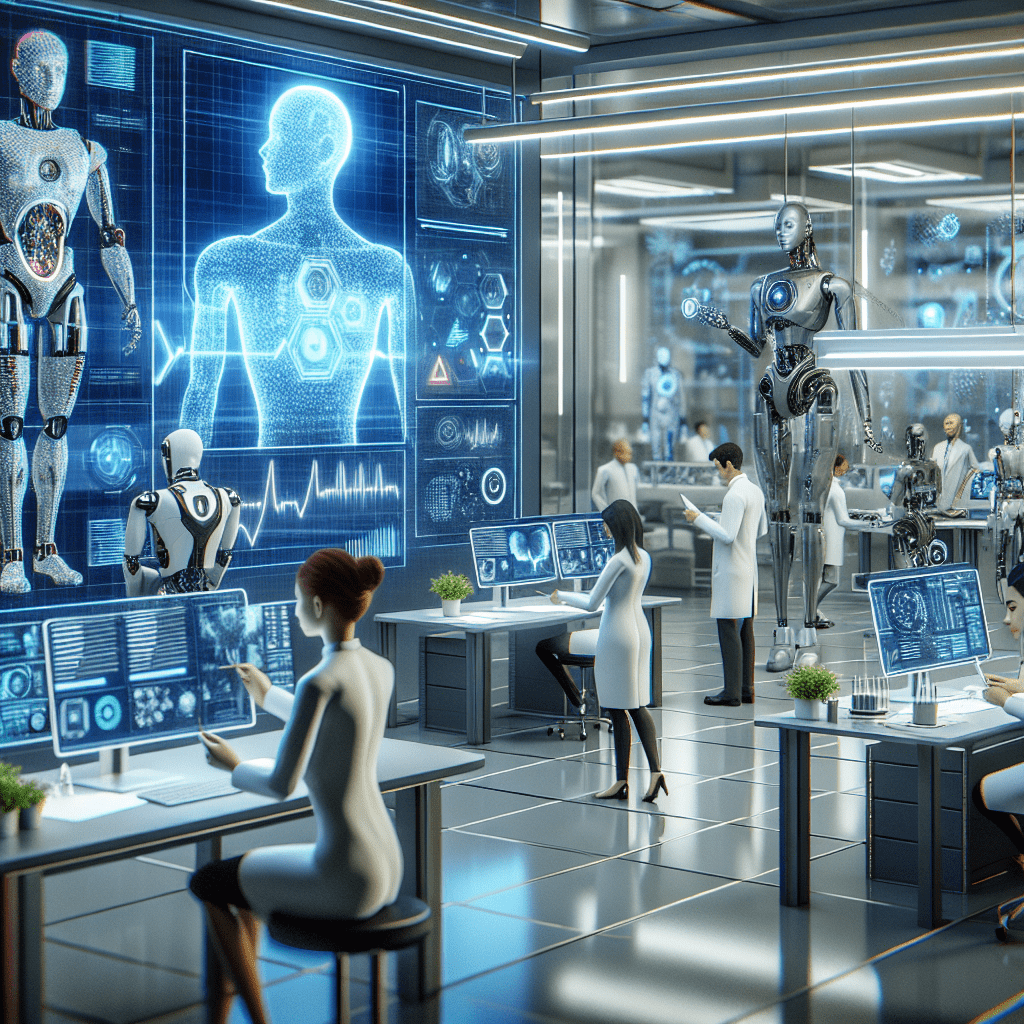Artificial Intelligence (AI) is no longer just a concept of the future. It is now a reality that is shaping the world we live in. The rapid advancements in AI technology are revolutionizing industries and changing the way we work, live, and interact with each other. In this article, we will delve into the latest AI innovations that are paving the way for a more efficient and intelligent future.
1. Natural Language Processing (NLP)
Natural Language Processing is a branch of AI that focuses on enabling machines to understand, interpret, and generate human language. With the help of NLP, machines can analyze and derive meaning from vast amounts of unstructured data, such as text, speech, and images. This innovation is revolutionizing the way we interact with technology, making it more intuitive and personalized.
2. Machine Learning
Machine Learning is a subset of AI that enables machines to learn from experience without being explicitly programmed. By feeding large amounts of data into algorithms, machines can identify patterns and make data-driven predictions and decisions. This technology is being used in various applications, such as autonomous vehicles, medical diagnosis, and financial forecasting.
3. Computer Vision
Computer Vision is a field of AI that enables machines to interpret and understand the visual world. Through the use of deep learning algorithms, machines can analyze and process images and videos, enabling applications such as facial recognition, object detection, and autonomous drones. This technology is revolutionizing industries such as healthcare, retail, and security.
4. Autonomous Systems
Autonomous systems are AI-powered machines that can perform tasks and make decisions without human intervention. These systems are being used in various industries, such as transportation, agriculture, and manufacturing, to improve efficiency, safety, and productivity. Autonomous vehicles, drones, and robots are just a few examples of how AI is transforming the way we work and live.
5. Robotics
Robotics is a field of AI that focuses on designing and building robots that can perform tasks autonomously. These robots are equipped with sensors, actuators, and AI algorithms that enable them to interact with the environment and make decisions in real-time. Robotics is revolutionizing industries such as healthcare, construction, and logistics, by automating repetitive tasks and improving precision and accuracy.
Conclusion
The future is now, and AI is at the forefront of innovation. With the latest advancements in AI technology, we are witnessing a new era of intelligent machines that are transforming the world we live in. From natural language processing to robotics, AI is revolutionizing industries, reshaping the way we work and interact with technology. As we continue to explore the possibilities of AI, we can expect to see even more groundbreaking innovations that will further enhance our lives and propel us into a more intelligent future.
FAQs
Q: What are some examples of AI Applications in everyday life?
A: Some examples of AI Applications in everyday life include virtual assistants (such as Siri and Alexa), recommendation systems (such as Netflix and Amazon), and autonomous vehicles (such as Tesla cars).
Q: How is AI changing the job market?
A: AI is reshaping the job market by automating repetitive tasks and augmenting human capabilities. While some jobs may be displaced, new opportunities for AI-related roles and industries are emerging.
Q: What are the ethical implications of AI technology?
A: Ethical considerations surrounding AI technology include concerns about data privacy, bias in algorithms, and the impact of automation on jobs and society. It is important for organizations and policymakers to address these issues to ensure the responsible development and deployment of AI technology.
Quotes
“The development of full artificial intelligence could spell the end of the human race.” – Stephen Hawking
Write a short story about a young girl who discovers she has the power to communicate with animals.


